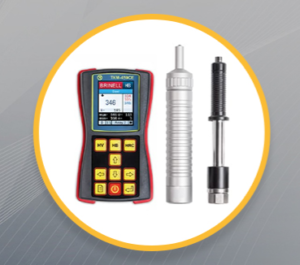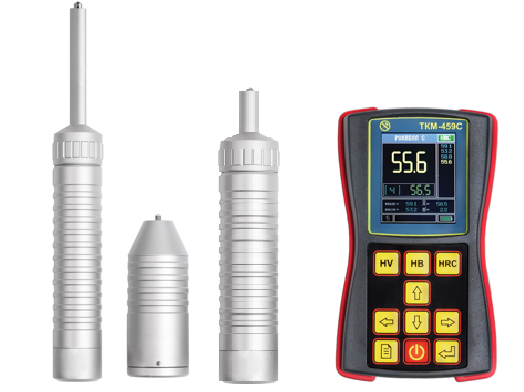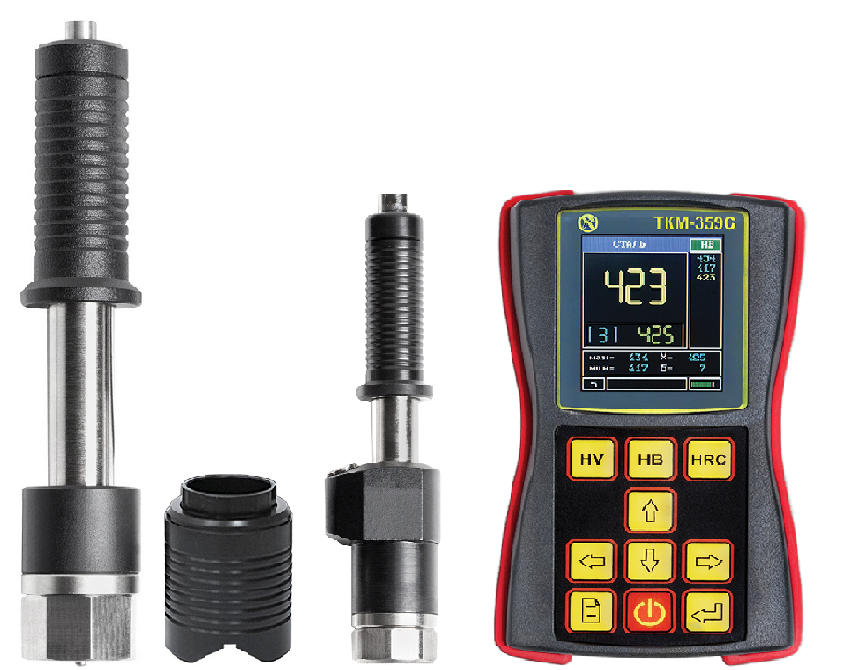Portable Hardness Tester

- Stable reading independent from force and time
- No limitation for mass and thickness (2mm above) of job piece
- Hardness Measurement in hard to reach area (5mm slot is enough)
- Accurate results on plating i.e Crome & Nickle

- Low sensitivity to the curvature & roughness of job surface
- High Accuracy : 0.5%
- Measurement in any direction, no need to select the angle
- Wide range of controlled metals and alloys
Collaboration
Metal Hardness is owned by RiM LaS Private Limited. For their whole range of manufactured hardness tests, Mashproject LLC, RUSSIA has chosen us as the sole Nation Sales Partner for India.
MASHPROJECT LLC is a Russian-based firm. It is a scientific-production company formed by a group of engineers and the Materials Research Institute’s nuchnyh department of non-destructive testing, one of the top Allied institutes in the Defense Industry. The team has more than 30 years of experience developing, manufacturing, and utilising non-destructive testing, inspection, and evaluation techniques.

RiM LaS is a pioneer in the introduction of technological advances and goods. Over the years, we’ve put forth a lot of effort to bring valuable and new ideas to reality. To accomplish so, we collaborated with a number of companies around the world that are also working on highly superior products. We are continuously on the lookout for new and innovative ideas that will help us shape the future of the Indian industry.
Metal Hardness Tester
Despite the availability of new materials manufactured utilizing cutting-edge technology, metal remains the most widely utilized and widely distributed material. Different types of metals and alloys are used in all manufacturing industries. Construction, electric power generation, mechanical engineering, defense, and medical sectors are all reliant on various grades of that material. Naturally, the importance of quality indicators rises to the top of the priority list. The indication for the portable hardness tester is on top of them. It is described as a material’s ability to withstand elastic deformation, plastic deformation, and/or destruction of surface layers produced by a more rigid physical object, as well as its resistance to long-term damage after contact (impact) (the indenter of the metal hardness tester, for example).
It becomes difficult, if not impossible, to obtain samples that can be thoroughly examined in a laboratory for many of the things under evaluation. Portable hardness testers can no longer measure anything other than hardness. The ability to analyze the object’s construction features, its usage in all details, evaluate the depreciation rate over time, and how different temperatures may impact it, among many other things, is made possible by measuring the hardness of metals.
We have Leeb/Dynamic/Rebound hardness testers and UCI Hardness Testers to meet practically all applications of hardness testing in the industry through portable hardness tester.
Portable Hardness Tester Variants

UCI HARDNESS TESTER TKM‑459CE
TKM-459CE is a high-precision metal hardness tester designed for fast measurements of metal hardness in laboratory, manufacturing, and field settings.
The device is used in sectors such as metallurgy, mechanical engineering, aerospace, shipbuilding, atomic energy, and oil and gas for non-destructive quality assurance testing.
The UCI approach is used to operate the hardness tester (Ultrasonic Contact Impedance).

LEEB HARDNESS TESTER TKM‑359CE
The TKM359CE is a high-precision rebound portable hardness tester for quick evaluations of metal goods in lab, industry, and field settings.
The Leeb is used in sectors such as metallurgy, mechanical engineering, aerospace, shipbuilding, atomic energy, and oil and gas for non-destructive quality assurance testing.
The metal hardness tester is operated using the Leeb technique.